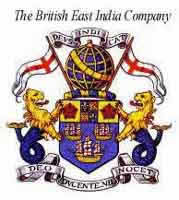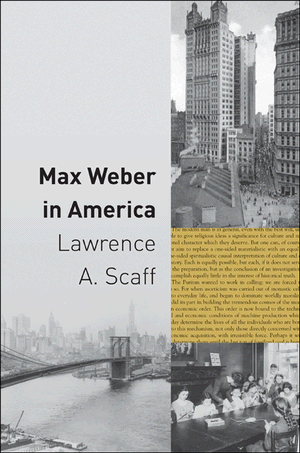
A popular book in this week's reviews is
A Thousand Times More Fair: What Shakespeare’s Plays Tell Us About Justice (Ecco, 2011), by NYU law professor
Kenji Yoshino. Yoshino uses twelve of the Bard's plays to reflect on current debates about law and justice. The reviews are mixed. In the
New York Times, Gary Wills concludes that Yoshino's Law and Literature class is "probably great fun" and that "students may sharpen some lawyerly skills" by considering "how the O. J. Simpson 'bloody glove' resembles Desdemona’s strawberry-spotted handkerchief." "But if they want more understanding of Shakespeare, they should sneak off to the theater, where he belongs . . . ."
Eric Posner (University of Chicago Law School), writing for the
New Republic/The Book, offers a similarly lukewarm assessment: he praises Yoshino for drawing out "crisp lessons," but also notes occasions when the author uses Shakespeare's work to "illustrate moral platitudes."

This week the
Washington Post book review editors seem to be ruminating on the truth, and the cost of its exposure. They've chosen to cover
Why Leaders Lie: The Truth About Lying in International Politics (Oxford, 2010), by political scientist
John Mearsheimer, and
Inside WikiLeaks: My Time with Julian Assange at the World's Most Dangerous Website (Crown, 2011), by former WikiLeaks spokesman
Daniel Domscheit-Berg. The Post also takes up
Gary W. Gallagher's
The Union War (Harvard, 2011), an "exceptionally fine" book in which Gallagher debunks "what has become the new conventional wisdom, that the North fought the war in order to achieve the emancipation of the slaves." And did you ever want to know the truth about the founding fathers' hobbies? Now you can: the first four presidents were obsessed with horticulture, according to
Founding Gardeners: The Revolutionary Generation, Nature, and the Shaping of the American Nation (Knopf, 2011), by design historian
Andrea Wulf.
"They all knew they were right." This is the title of the
Wall Street Journal review of
Moral Combat: Good and Evil in World War II (Harper, 2011), by independent historian
Michael Burleigh. (Burleigh left academia, he explained in an interesting 2008 interview with
the Guardian, to avoid becoming surrounded by "cronies" and "clones.") Reviewer Timothy Snyder (Yale University) credits Burleigh for having "seen and filled an opening in the history of World War II": the morality angle. Burleigh "insists on the ineluctable historical presence of morality in our lives, which leads him to his basic insight: that those who did evil believed that they were doing good." The full review is
here.
Also in the WSJ Books Section, Harold Holzer picks five great
Civil War diaries, and Bill Kauffman reviews
Howard Mean's new biography of
Johnny Appleseed, "'nurseryman; religious zealot; real-estate dabbler' and even altruistic capitalist."
 The Nation
The Nation spotlights the first volume of
The Letters of Rosa Luxemburg (Verso, 2011), edited by Annelies Laschitzam, Georg Adler, and Peter Hudis. Reviewer Vivian Gernick distills from the collection "Luxemburg’s single most important insight -- that socialists must remain empathic beings throughout their revolutionary lives. Otherwise, she asked, what kind of world would they be making?"

If only undergraduates could analyze primary sources so well. Over at the
Los Angeles Times, you'll find a review of
In the Basement of the Ivory Tower (Viking, 2011), in which the anonymous "Professor X" (of
Atlantic essay fame) relates a series of "bonehead tales from the classroom" and builds an argument about the corruption of the community college system. (An earlier WSJ review -- asking "Do you have to read 'King Lear' to write a speeding ticket?" -- is
here; the NYT covered the book
here.)
Also reviewed in the LA Times,
Jerusalem, Jerusalem: How the Ancient City Ignited Our Modern World (Houghton Mifflin Harcourt, 2011), by former Catholic priest
James Caroll. The "ambitious," interdisciplinary book uses the famous city to ground an exploration of "the tumultuous past" of three world religions. (An earlier NYT review is
here.)

"Didn't they notice?" "Why is no one paying attention?" That is the theme of David Runciman's review of
Treasure Islands: Tax Havens and the Men who Stole the World (Bodley Head, 2011) by
Nicholas Shaxson
and
Winner-Take-All Politics: How Washington Made the Rich Richer – and Turned Its Back on the Middle Class (Simon and Schuster, 2011) by
Jacob Hacker and
Paul Pierson
. The full review is in the
London Review of Books.
Passivity in the face of corruption also appears to be a theme of
Cambodia's Curse: The Modern History of a Troubled Land (PublicAffairs, 2011), by
Joel Brinkley, reviewed this week in the
San Francisco Chronicle.
Last, a few repeats: We've already mentioned the NYRB
review of the new
Gandhi biography, by Joseph Lelyveld. An additional review, from the LA Times, is
here. We've also noted the publication of Francis Fukuyama's
The Origins of Political Order. Reviews from the NYT, the SF Chronicle, and the WSJ are
here,
here, and
here.
Happy reading!








 by Edmund Morris, and
by Edmund Morris, and  by Joseph J. Ellis, and
by Joseph J. Ellis, and  by G.J. Barker-Benfield.
by G.J. Barker-Benfield. 













